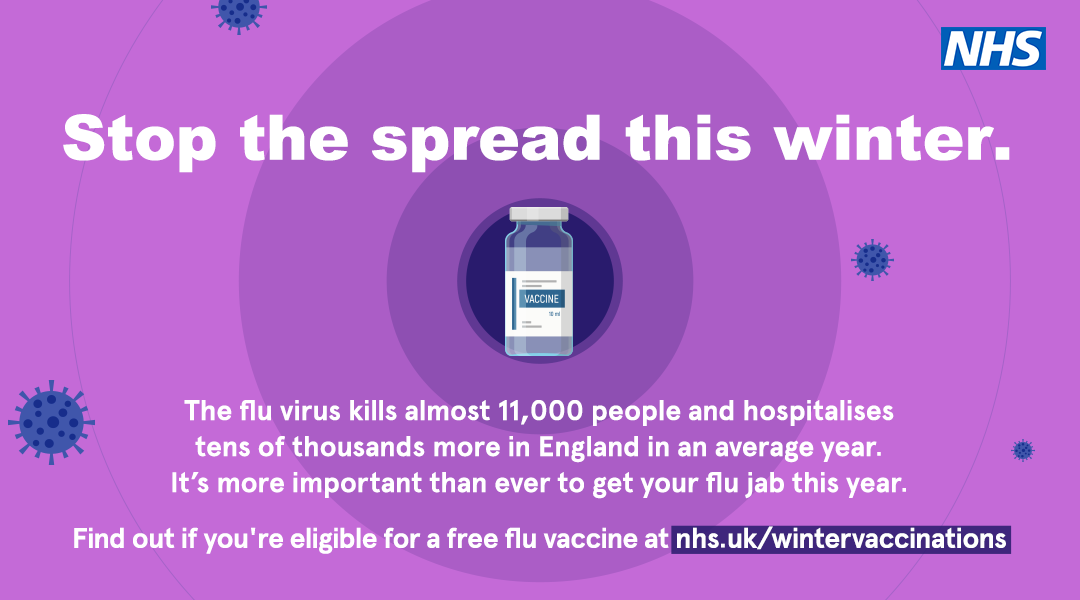Flu Vaccination
Flu vaccination is safe and effective. It's offered every year through the NHS to help protect people at risk of getting seriously ill from flu. The 2025 flu vaccine will be offered from September.
Eligible groups
From 1 September 2025:
- pregnant women
- all children aged 2 or 3 years on 31 August 2025
- primary school aged children (from Reception to Year 6)
- secondary school aged children (from Year 7 to Year 11)
- all children in clinical risk groups aged from 6 months to less than 18 years
From October 2025:
- those aged 65 years and over
- those aged 18 years to under 65 years in clinical risk groups (as defined by the Green Book, Influenza chapter 19 )
- those in long-stay residential care homes
- carers in receipt of carer’s allowance, or those who are the main carer of an elderly or disabled person
- close contacts of immunocompromised individuals
- frontline workers in a social care setting without an employer led occupational health scheme including those working for a registered residential care or nursing home, registered domiciliary care providers, voluntary managed hospice providers and those that are employed by those who receive direct payments (personal budgets) or Personal Health budgets, such as Personal Assistants
All frontline health care workers should be offered flu vaccine from the start of October.
Flu is a highly infectious and common viral illness that is spread by coughs and sneezes. It is not the same as the common cold.
Flu is caused by a group of different group of viruses and symptoms tend to be more severe and last longer. You can catch flu all year round, but it is especially common in winter, which is why it is also known as ‘seasonal flu’.
Why flu vaccination is important
Flu vaccination is important because, while flu is unpleasant for most people, it can be dangerous and even life threatening for some people, particularly those with certain health conditions.
The best time to have your flu vaccine is in the autumn or early winter before flu starts spreading. But you can get your vaccine later.
You can find out more about the flu vaccination on NHS England's flu vaccination pages.

Flu vaccine and coronavirus (COVID-19)
Flu vaccination is important because:
- if you get flu and COVID-19 at the same time, research shows you’re more likely to be seriously ill
- getting vaccinated against flu and COVID-19 will provide protection for you and those around you for both these serious illnesses
If you’ve had COVID-19, it’s safe to have the flu vaccine. It will still be effective at helping to prevent flu.
Where can I get my flu jab?
You can have the NHS flu vaccine at:
- your GP surgery – they will contact you to book an appointment
- a pharmacy offering the service
- your midwifery service if you’re pregnant
- a hospital appointment
If you do not have your flu vaccine at your GP surgery, you do not have to tell the surgery. This will be done for you.
Find your nearest pharmacy offering the free NHS flu vaccine


